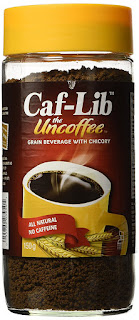Who in their right minds would quit coffee?
Coffee actually does have some nice benefits. For example, one extensive study in Korea confirmed that black, organic coffee is great for your heart (Link). Another interesting study links drinking coffee with longevity (Link).
Quitting coffee can be difficult. It can lead to pounding headaches, fatigue and even depression (Link). So, why would anyone want to go through these difficult coffee withdrawal symptoms?
Despite some of the positive aspects of drinking coffee, it also has its downsides. First of all, it is proven to be very addictive (Link).
Secondly, drinking daily coffee is associated with a caffeine crash - which can lead to a sense of exhaustion or even depression as the daily crash sets in (Link). Some coffee drinkers have also experienced irregular heartbeat, insomnia, jitters, increased anxiety, heartburn and temporary blood pressure spikes. While some people experience none of these symptoms, many people do, and feel the need to quit coffee.
But how to quit coffee?
2) Switch to Swiss Water Decaf - If you love the taste of coffee, there are many organic decaf coffees available now. The "Swiss Water Process" uses natural ways to remove the caffeine in coffee, so harsh chemicals are avoided. Fortunately for us, these chemical free decaf coffees taste amazing and are becoming more popular.
3) To combat headaches, try Green Tea. Green tea has far more benefits than coffee with 25% of the caffeine (Link).
Sadly, one famous drink that is often overlooked is hot chocolate. Tradition tends to give year round preference to coffee, reserving hot chocolate for cold winter nights. However, many people are starting to buck that silly tradition, replacing their morning coffee with cocoa on a daily basis. Hot chocolate has about 10-15% as much caffeine as coffee (Link) and is also good for your heart, your blood pressure, your skin and your cognitive abilities (Link).
5) During Withdrawals, Give Yourself Time For Rest. Coffee withdrawals can bring headaches as well as exhaustion. Giving yourself time to sleep, rest and simply recharge during these withdrawals may be essential. The worst withdrawals occur the first few days. So plan on quitting during a weekend when you can sleep a lot, for example.
6) Have fruit or a fruit smoothie for breakfast. The natural sugars in fruit smoothies help to boost energy while providing an excellent source of fiber, antioxidants and vitamin C. A fruit smoothie can be combined with your coffee replacement to give you the energy spike that you're looking for.
6) Have fruit or a fruit smoothie for breakfast. The natural sugars in fruit smoothies help to boost energy while providing an excellent source of fiber, antioxidants and vitamin C. A fruit smoothie can be combined with your coffee replacement to give you the energy spike that you're looking for.
creative commons photo link
7) Cut Back Gradually. Cutting back gradually makes the headaches and other withdrawal symptoms less severe.
8) Forgive yourself if you have a cup. Remember that coffee does have health benefits, and there are worse things than drinking coffee. The decision to quit is totally your own, and many reasonable people decide that they will never quit coffee. So if you do have an occasional cup, it definitely isn't the end of the world.
9) Stop Before You Start. Withdrawal from coffee can be very painful and difficult. As the Smithsonian puts it, "Within 24 hours of quitting the drug, your withdrawal symptoms begin. Initially, they’re subtle: The first thing you notice is that you feel mentally foggy, and lack alertness. Your muscles are fatigued, even when you haven’t done anything strenuous, and you suspect that you’re more irritable than usual. Over time, an unmistakable throbbing headache sets in, making it difficult to concentrate on anything. Eventually, as your body protests having the drug taken away, you might even feel dull muscle pains, nausea and other flu-like symptoms." (Link)
In other words, why start this new addiction if you're currently free from it? Since breaking an addiction usually leads to a painful withdrawal period, it's far easier to stop before you start.











